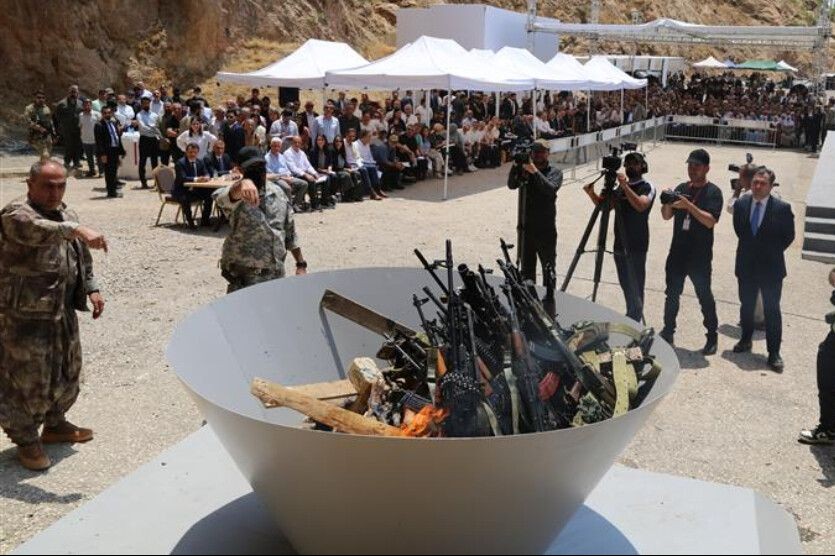Turkey elections | It is not only the municipalities they have lost

Hakkı Özdal

Fotoğraf: MA
The 1989 local elections took place under the conditions of a 6-year hegemonic ANAP government, under the conditions of a deepening distribution shock with intense attacks on labor and high inflation, and the party of the 1980 coup regime, ANAP, and its leader Turgut Özal suffered a heavy defeat. Özal found a way to throw himself into Çankaya presidential residence after this election, but two years later, in 1991, early elections ended 8 years of ANAP rule. ANAP, as a shrinking center party, began the destructive journey that would eventually turn it into a party in the name only. It is an exceptional election in recent history where a ‘local election’ had a lasting impact on general politics, and all dominant actors, including capital and the state, had to adopt new positions and pursuits. Although what happened in the intervening 1990s was a vicious circle that ended with the AKP regime, the transformation of centre politics in Turkey with all its actors took place after the 1989 local elections.
The March 31, 2024 local elections give an unmistakable signal that Turkey has reached the end of a dominant political era that began in 2002. The emerging picture will change Turkish politics, its main actors, institutions and even alliances. This is because even if the 'winners' have won local governments, the 'losers' have not lost municipalities only. Of course, the presidential palace and its spokespersons will make an effort to reduce March 31st to a local election and trivialize it. But just as the huge state resources and dirty propaganda were not enough to soften this picture, let alone change it, their efforts to minimize the defeat will also fail. The defeat will have some of its leading consequences on the elements of power themselves, accelerating hesitations, dissolutions and new pursuits.
It must be said that especially since the June 7, 2015 elections, every ballot box, be it a local election or a referendum ballot box, has been the site of a political polarization and showdown on a national scale. This was a preference and imposition of Erdoğan and his regime. The strategy symbolized by the “survival” discourse was transformed into a vote of confidence for Erdoğan and the regime embodied in his person, regardless of the polls. This strategy had an impact on the results that have emerged so far. However, starting with the 2017 referendum, it was seen that the AKP-MHP alliance declined in Istanbul, along with all metropolitan cities, and in fact, since the ‘re-election’ in November 2015, the AKP has not been able to win a single election here again. Erdoğan, whose motto was “Whoever wins Istanbul wins Turkey”, was able to compensate for his losses in Istanbul and other metropolitan cities for a while with his votes concentrated in Anatolia.
The election that ended this scheme was the local elections of March 31, 2024. The increasing poverty and income inequality that has turned into an abyss with the imposition of high inflation and low wages; the rapid revelation of what the false promises of the ‘rational economy’ program led by Mehmet Şimşek, Finance Minister, actually meant; and Erdoğan’s open embrace of the process that has worn down all laborers and pensioners have worn out the AKP’s mass ties on a national scale.
The next step for the government and its allies will be to try to manage the process, a significant part of which is likely to develop against their will, in terms of where this grave situation will evolve. It is likely that all the elements of the government, especially the regime’s junior political partner MHP-Bahçeli, will engage in internal debates and showdowns, as well as tendencies to “take care of themselves”. The impositions on Erdoğan’s presidency for one more term will be null and void in the face of this picture, and it may even be necessary to eliminate the asymmetry between the general political picture and the picture that emerged in this election before 2028.
In the most general terms, a sequence of fluctuations of the capitalist order since 2002 is coming to an end. The people of Turkey, and especially its working people in the metropolitan and Anatolian cities, have produced a result that will change the course despite the heavy propaganda carried out by all state forces. What comes next will depend on the strength and resilience of the direct struggles that will determine the relationship between the ‘new era’ and ‘new actors’ and the general interests of society and working people. It can be said that a new era has begun for the working people of Turkey.
Forwarding to the next article...
10 seconds remaining





Follow Evrensel